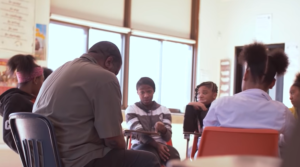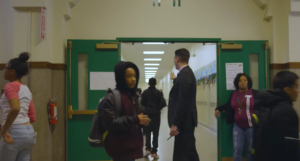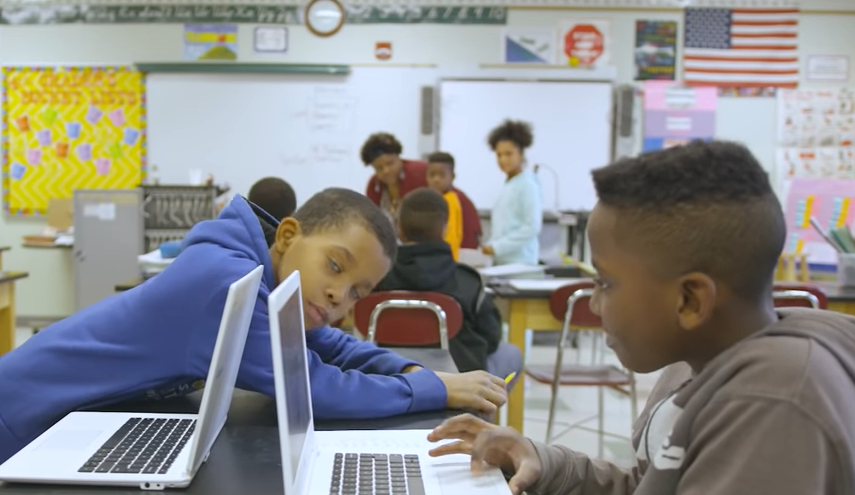Photos: YouTube Screenshots
CHARLOTTE, NC – Federal education officials and other leaders expressed alarm this week at the Southern Education Foundation’s 2023 Issues Forum on the continuing inequities many Black students face, citing newly released U.S. Department of Education data.

U.S. Deputy Secretary of Education Cindy Marten called during the conference for “a generational commitment” to “more diverse, more equitable, and ultimately more enriching learning experiences” for every student across the nation.
“There’s no room to shame and blame. Let’s just get this done,” Marten told the conference Wednesday.
The U.S. Department of Education released its latest Civil Rights Data Collection report the same day. Among the highlights from a survey of school districts during the 2020-21 school year:
- About 1.7 million students attended schools with a sworn law enforcement officer but no counselor on campus.
- Black boys were nearly twice as likely to see out-of-school suspension than white boys. About 18% of Black boys were suspended during the year, and 18% of Black male students were expelled.
- Black students represented 15% of students in high school but only 10% of students in Advanced Placement (AP) computer science classes, 8% of students in AP science, and 6% of students in AP mathematics, POLITICO reported.
The SEF Issues Forum gathered more than 200 leaders from advocacy organizations, plus educators and other allies, to focus on improving education – especially for students of color and those from low-income backgrounds. “The South has been the epicenter of transformative change, showing what’s actually possible” in education and can be again, Deputy Secretary Marten added.

“The evidence is clear that Black students still do not have the same educational opportunities as their peers,” Southern Education Foundation President and CEO Raymond Pierce said Wednesday during a conference session in which he interviewed Marten. “The good news is we can solve this problem through greater and more equitable funding for schools, more access to early childhood education, and focusing on public schools rather than sending funds to private schools through vouchers.”
Shaheena A. Simons, chief of the Educational Opportunities Section at the U.S. Department of Justice Civil Rights Division, also spoke during the Issues Forum. She noted that about 136 desegregation cases are still open across the South, mostly in Alabama, Georgia, Mississippi, and Louisiana. This fact indicates many school districts still do not offer the same opportunities for Black students as for others, recalling “the echoes and the vestiges of the dual system” in education, Simons said.
Damon Hewett, the president of the Lawyers’ Committee on Civil Rights Under Law, said that his organization and many others are pushing for greater equity to give every student “a school that gives them everything they need,” with more substantial access to rigorous courses such as calculus and physics, and less of a reliance on inexperienced teachers.
From the mid-1960s to the mid-1970s, some school districts began to retrench from desegregation and the 1954 Brown v. Board of Education decision. This era was the “beginnings of a downward spiral that we’ve never come out of” in educational opportunities, said Catherine Lhamon, the assistant Secretary for the U.S. Department of Education’s Office of Civil Rights said during the Issues Forum.
Leaders also lamented the presence of these continued challenges, despite the fact that many advocates for school desegregation in Charlotte and other places once risked their lives to push for change. Dorothy Counts-Scoggins, one of the first students to desegregate Charlotte schools in 1957, and other advocates shared their stories during the Nov. 14 conference kickoff panel.
“We take forth their lessons and their wisdom,” said Kenita Williams, the chief operating officer of the Southern Education Foundation. “This is still a long journey toward achieving education justice, and we still have many miles to go.”

The Southern Education Foundation is a 155-year-old education and civil rights organization based in Atlanta. We work to improve education in 17 states and across the nation, with an emphasis on Black students and students from low-income families.






